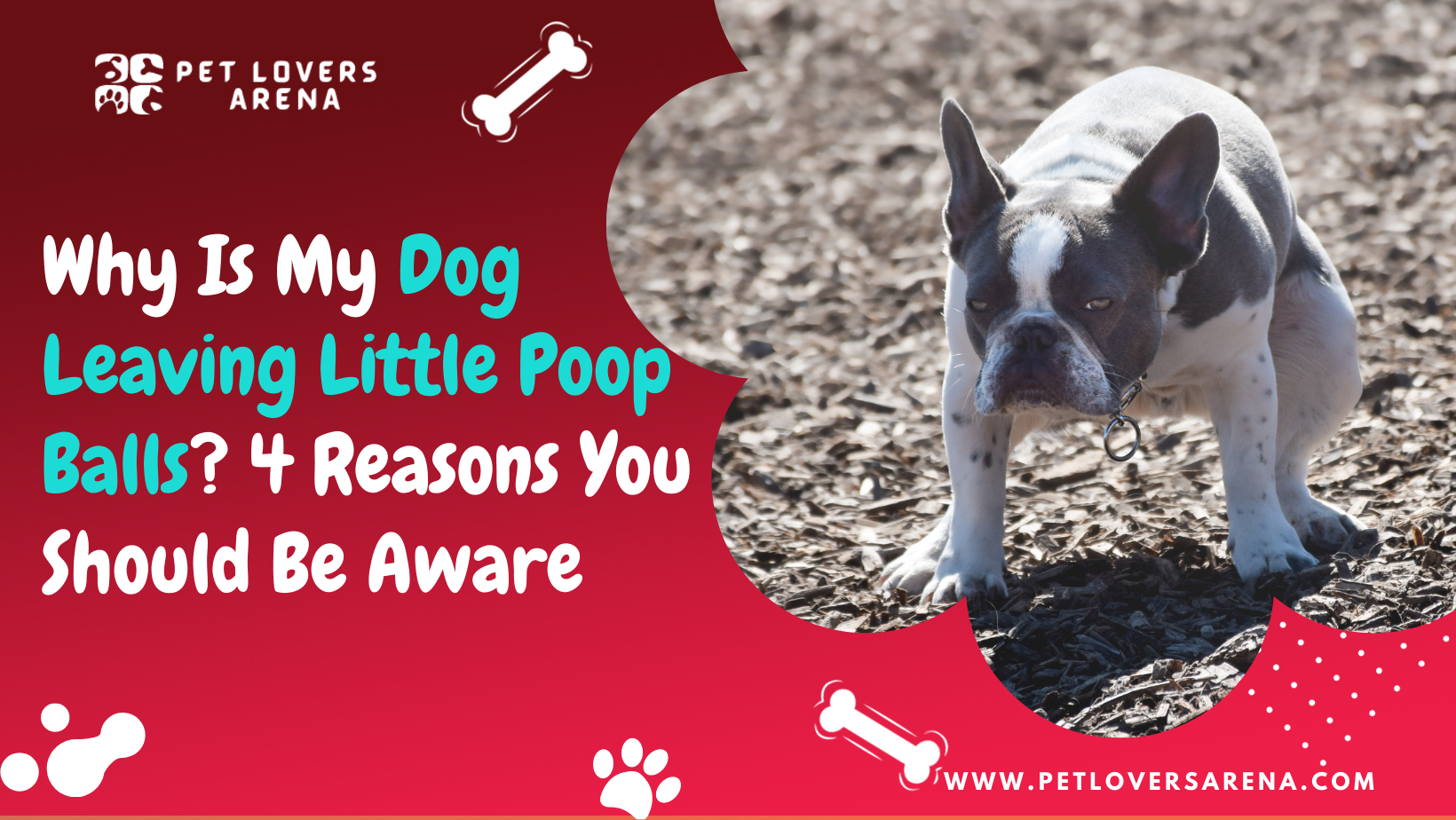It is worrisome when you have a fully housebroken dog, but you still notice your dog leaving little poop. If the condition is so, it becomes necessary for you to go for further investigation.
The main reason for your dog’s leaving little poop is bowel incontinence. In bowel incontinence, the sphincter muscles in the dog’s anal canal become weak, and it causes the dog to leak poop everywhere.
There is a variation in bowel incontinence, as your dog may not be aware when it should go for pooping in some cases. The other case is when your dog knows that it should go potty but still cannot do so. This article will give you an insight into the reason for the question, why is your dog leaving little poop balls.
Why is My Dog Leaving Little Poop Balls?
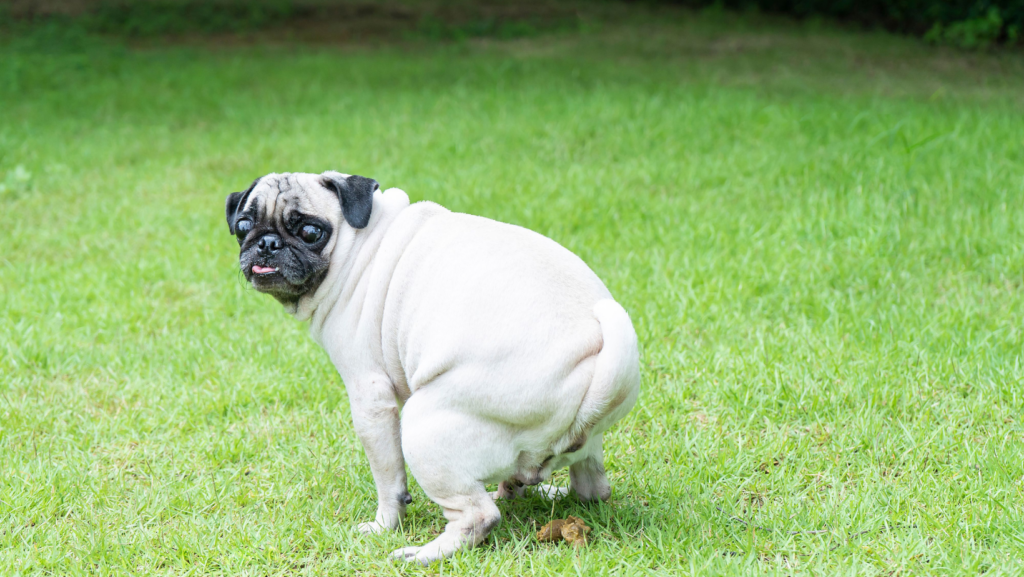
There can be numerous reasons why your dog leaves poop balls while walking that you are not aware of. Sometimes you may notice the dog walking like it wants to poop or may poop on the bed or anything like that. The simple reason for this can be any injury or something else. So let’s find the reason behind the dog’s leaving small poop.
There can be many reasons for your dog’s leaving poop while walking, and some of them are mentioned below.
1. Bowel Incontinence
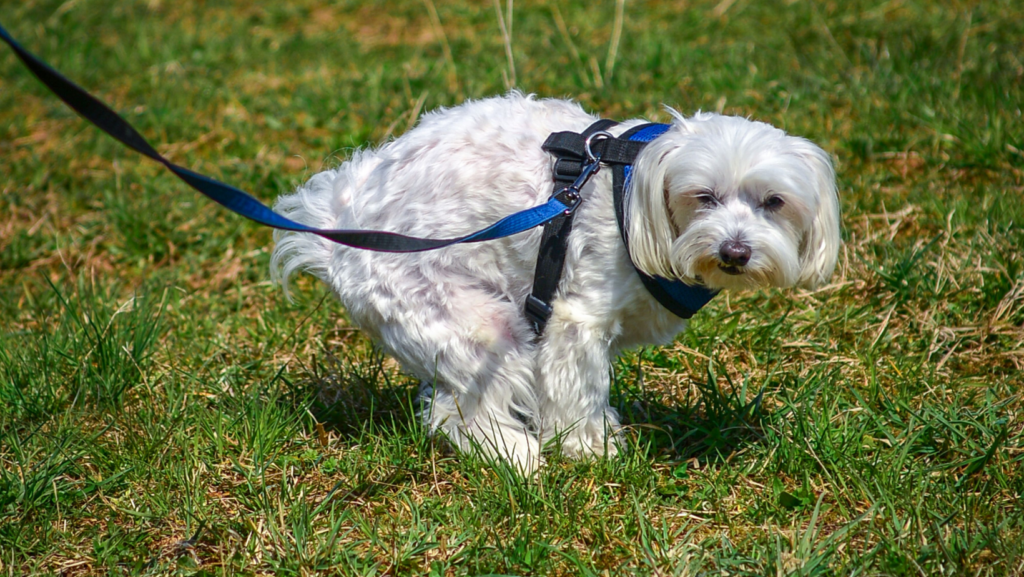
Bowel incontinence can be why your dog’s leaking poop even while sleeping. As a result, when the dog is suffering from bowel incontinence, it cannot control its poop for long enough, and, as a result, the dog poops in the bed.
Many issues may lead to bowel incontinence in your dog, and some of the most common causes of the same are here:
- Muscle atrophy
- Trauma
- Parasites
- Perianal fistula
- Myelopathy
- Anal sac infection
- Hind leg paralysis or debilitation
- Myasthenia gravis
When the communication between the colon and the brain remains compromised, this situation occurs.
Bowel incontinence is further of two more types, namely:
- Reservoir incontinence
- Sphincter Incontinence
Reservoir Incontinence
If your dog is suffering from a rectum issue, there are high chances that it will be reservoir incontinence. The rectal is the outermost part of the anal canal, responsible for storing and eliminating the stool.
Numerous factors affect the dog’s rectum, including cancer, diarrhea, etc. The pet suffering from reservoir incontinence will have a problem in the rectum that won’t allow it to remove the waste product or stool as it becomes weak. As a result, the dog won’t be able to pass stool or face difficulty in the same.
Sphincter Incontinence
Sphincter Incontinence is a disorder mainly concerned with sphincter muscles. In sphincter disorder, the inability is concerning the sphincter muscles, in which the sphincter muscles get weak, and the dog is unable to poop at once.
The weakening of sphincter muscles causes the anal sphincter to tighten. As a result, the dog cannot poop, and the poop gets leaked out at times.
There are further two main reasons for sphincter incontinence in dogs:
- Damage to the nerve causes problems with the opening and closing of the anal sphincter. These nerves mainly arise from the spinal cord.
- Anal wounds can disrupt and cause the anal sphincter’s opening and closing problems.
When the dogs are first getting trained in the house, it is common for them to release poop all around the house. But the problem arises when the dogs still poop all around the house after getting completely house trained.
The dysfunctioning of the anal sphincter can be due to numerous reasons. Rectum dysfunction is the most common of them all. In addition, loss of sphincter in dogs can be due to various injuries that the dog faces.
The incontinence of poop or bowel movements in dogs can lead to diseases and conditions like poor diet, muscle damage, etc. Therefore, a dog with bowel incontinence is more likely to poop on the bed or the floor. The other things you will notice in such dogs are bloating, tiredness, etc.
Symptoms and Signs
Here are the symptoms you will notice in a dog suffering from bowel incontinence.
- Passage of poop even when the dog is standing, sleeping, or walking.
- The genital area gets inflamed.
- Scooting along hard surfaces to get relief.
- Bloating of the abdomen.
- Normal anal tone lacking.
- Increased flatulence.
The veterinarian will perform numerous tests to determine the exact cause of bowel incontinence in your dog.
Your dog’s doctor may carry out some of these tests on him: urine test, face analysis, abdominal radiography, ultrasonography, feces analysis, urine analysis, and some other tests. In addition to several other tests, your dog’s vet will perform other ones based on the results of these tests.
Treatment
Treatment of bowel incontinence depends upon the underlying cause that causes this condition to occur. Sometimes, if we cure primary issues only, bowel incontinence will get cured automatically.
If the anal sphincters or anal muscles get weakened, the veterinarian will advise drugs that focus on strengthening the muscles of the anal sphincter of the dog. In severe cases, surgery is the top recommendation of the veterinarian.
Based on your dog’s condition, the veterinarian will prescribe medicines or advise exercises like physiotherapy, swimming, acupuncture, electro-stimulation, etc.
Also Read: Why Does My Puppy Have Loose Stools At Night?
2. Constipation
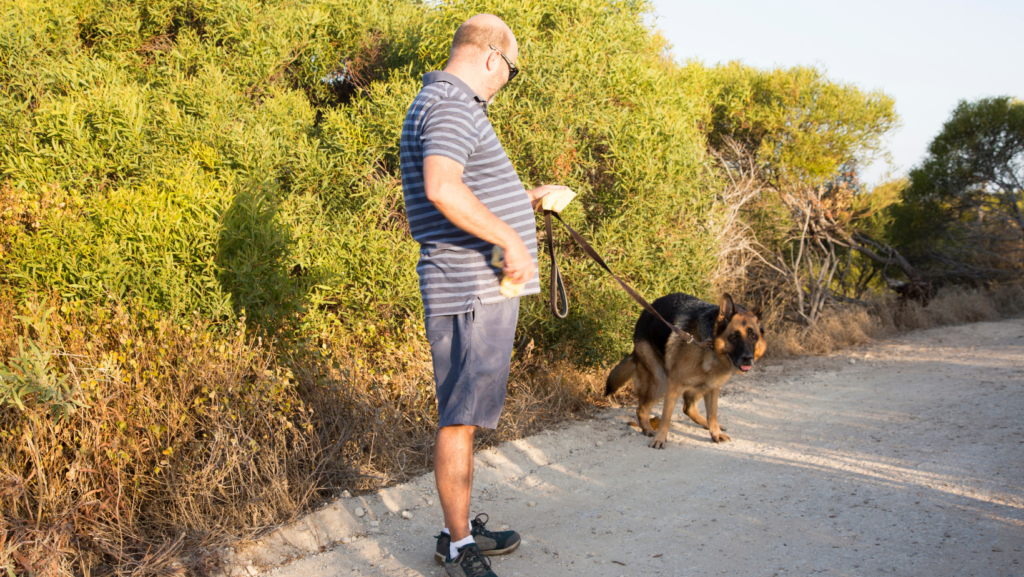
The dog’s leaving streaks of poop is also a sign of constipation. In constipation, dogs feel difficulty passing out feces from their bodies. If they feel difficulty, you may notice that the dog has pooped in the bed also.
As for such dogs, releasing small amounts of poop is easier, so you will notice the dog releasing small poop streaks wherever it goes. Also, if the dog is suffering from extreme constipation, it may leave out hard balls. If you give your dog a fiber-rich diet, it will decrease constipation by a great amount.
Besides, this dog’s vet will advise you to give your dog some anti-constipation medicines.
There can be many reasons for constipation in your dog. Some of these symptoms include:
- Lack of physical activity: If a dog has a sedentary lifestyle, it will have problems while releasing poop.
- Dehydration and dryness in dogs can increase the risk of constipation. Thus, dehydration is one of the causes of constipation in dogs.
- A dog who eats an inadequate diet and has an inadequate lifestyle is more likely to suffer from constipation.
- Prostate cancer
- Stress
- Anal sac disorder
- Hypothyroidism
- Medications have a side effect of constipation.
- Dietary indiscretions
- Issues in the pelvic area
Symptoms and Signs
Here are the signs and symptoms that show the dog is suffering from constipation.
- Feeling difficulty while squatting.
- Unable to poop
- Dry and crumbly poop balls
- Fecal matter contains blood clots.
Constipation is the main cause of numerous diseases, so immediately consult a veterinarian if you see the signs of constipation in your dog.
Treatment
If you want to treat your dog’s constipation at home, Here are a few things you can try out.
Give your dog a canned pumpkin to cure constipation in dogs. Canned pumpkin is a natural laxative that works very well for your dogs. Also, canned pumpkin is rich in dietary fiber, thus suitable for curing constipation and diarrhea. Mix canned pumpkin with your dog’s regular food or give it as such.
Provide your dog with more water so that it remains hydrated. Proper hydration of your dog will increase its ability to pass soft poop, thus decreasing constipation. Place the water bowl in places that are easily accessible for your dog.
Ensuring this will ensure that your dog drinks more water. Besides this, you can add some fruit juice essence, some chicken broth to the water, or some tuna drops. These things will ensure that the dog drinks more water and stays hydrated.
Ensure that your dog is physically active and gets exercise daily. Daily exercise will promote the poop to be released from the dog’s body easily, thus reducing constipation in dogs. Playing on the ground, brisk walking, jogging, or a light dog-friendly workout is the most preferred activity for your dog.
These home remedies or tricks are like first aid. If your dog doesn’t poop for more than three or four days, you need to consult the vet.
The veterinarian will first examine your dog carefully. If there is no physical injury or any other problem, the veterinarian will take constipation as the root cause. And will work on relieving your dog first. Then, the veterinarian may apply a laxative, enema, or stool softener, depending upon your dog’s situation.
3. Painful Physical Injury to a Dog
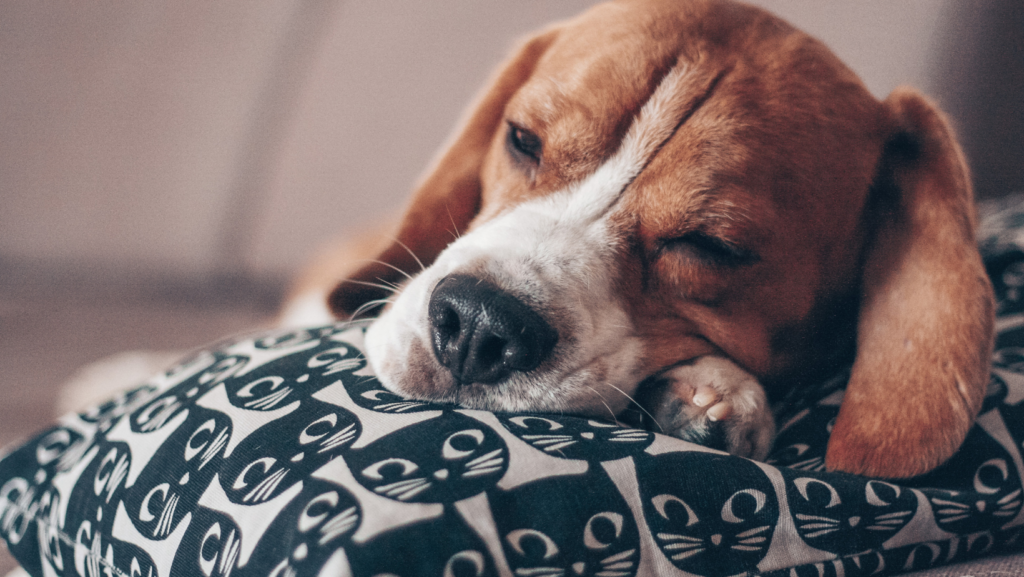
A dog suffering from acute disease or physical injury is more likely to release small poop rather than squatting and pooping all at once. Sometimes the injury is so painful that it prevents the dog from even moving. When the dog tries to squat at such times, he cannot do so, which causes trouble with your dog moving.
Even if your dog has painful arthritis or hip dysplasia, it will not be able to move properly, and this will cause trouble for your dog’s pooping too. For example, a dog who suffers from hip dysplasia faces problems while squatting and thus faces problems with pooping.
But when the urge to poop arrives in the middle of something, the dog doesn’t wait, and the poop comes in specks, which may cause the dog to poop in the whole house.
If your dog is facing any injury or painful condition, there can be various signs and symptoms you will notice in your dog.
Noticing the poop balls will be the only aspect you can measure and examine the clinical aspect of your dog’s poop.
Usually, if you deal with the primary injury, the pain will reduce, and there are high chances that the dog will start pooping back normally. The exact treatment and medications are the ones that the veterinarian of your dog will decide according to your dog’s needs.
4. The Dog is Facing Neurological Problems
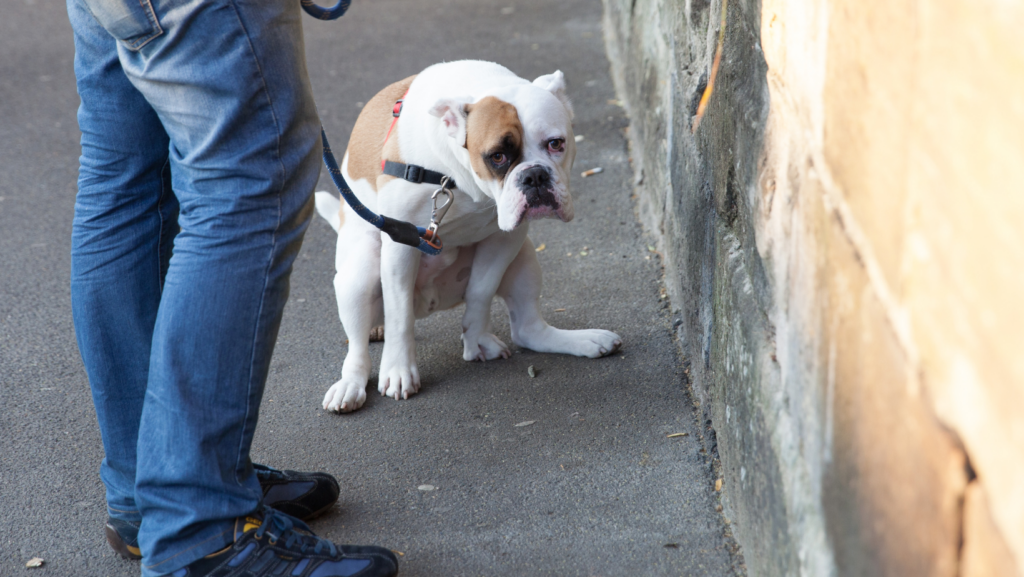
The neurological problems can affect your dog’s pooping pattern, causing your dog to poop pallets even at an adult age. The issue can be due to a dog’s nervous system problem. When a dog reaches adult age, their health and mental conditions worsen.
The poor health condition can be due to memory loss or incontinence in canines.
If neurological problems are responsible for your dog’s deteriorating condition, then the dog will not only poop everywhere but will also urinate everywhere. The dog will lose control of its bladder too.
If the dog is suffering from neurological conditions, the advice is to take the dog to the vet and perform a proper checkup.
Read More: Why Won’t My Dog Poop Outside? 8 Ways Training To Poop Outside
Is it Possible for Dogs to Lose Control of Their Bowels?
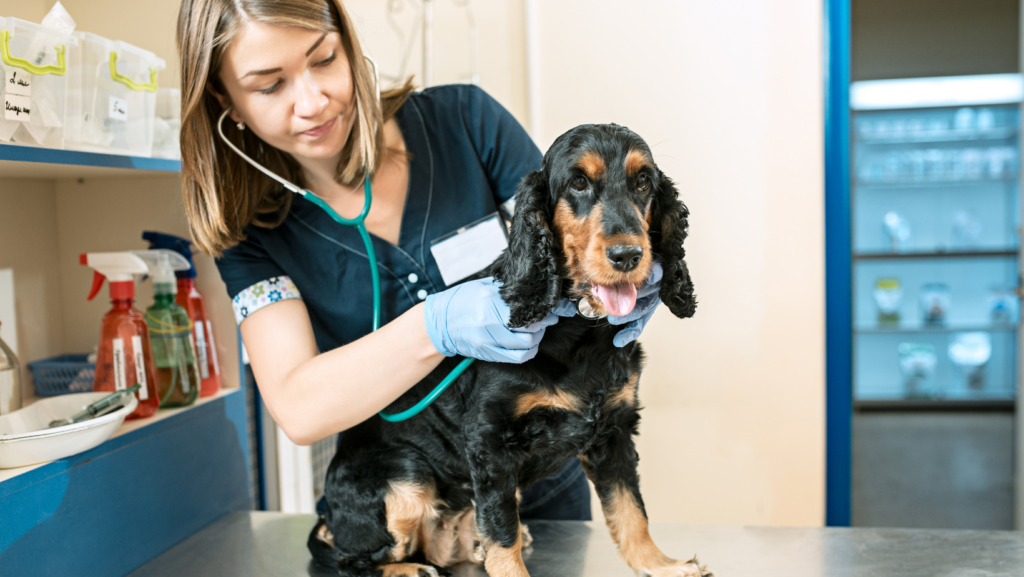
Yes, losing control over bowel movements is a common health condition in dogs due to their growing age. In addition, in old dogs, bowel incontinence is common. Here are the reasons for this:
- As a dog ages, the muscles in the dog’s body start to get weak. Weakness of muscles includes weakening of anal muscles that may cause problems in a dog’s pooping.
- Arthritis is a common problem in old dogs. The painful condition of arthritis makes it extremely difficult for dogs to poop as they cannot attain that pooping position. The dog will try to hold the poop as long as possible but eventually release the poop.
- Old dogs act strangely because of dementia. Due to forgetfulness or general disorientation, the dog may forget to poop, and this will cause trouble.
Some treatments and medications that the veterinarian prescribes will help to strengthen the muscles and reduce pain, thus ensuring that the dog can poop properly. But in the case of dementia, it is always management that matters most.
Here are tips and advice you can follow when managing a dog with weak bowel movements.
- After every meal, take your dog on a potty break.
- Protect your home with puppy pads, and you can use waterproof covers also.
- Place toilet stations in several places that are accessible to your dog. Hopefully, it will stop frequent accidents from happening.
- Use doggy diapers for your dog’s safety.
- Clean the spot where your dog poops with an enzymatic, pet-friendly cleaner.
- After each poop, wipe the genital area of your dog gently.
- Make sure to trim your dog’s coat often so that it doesn’t spoil.
Why is My Dog Not Able to Control Bowel Movements?
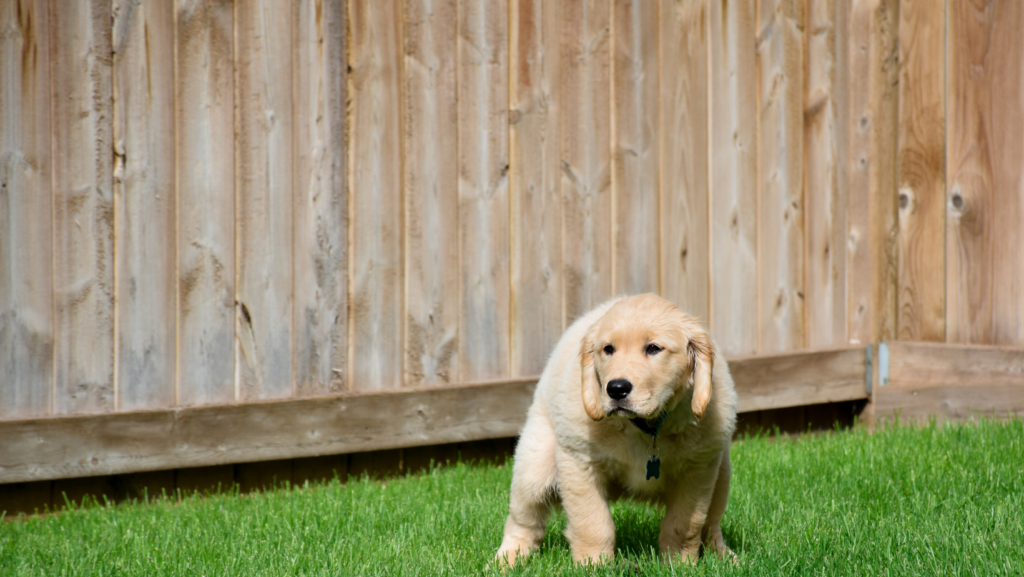
The most common reason a dog cannot control its bowel movement is some injury. For example, your dog’s spinal injury or tail injury causes difficulty for it to sit down and poop. Thus, the damage to the spine or tail of the dog may harm the anal muscles, which in turn leads to the loss of control over the bowel movements of the dog.
Dogs have another many causes of loose bowel movements. Fungus in the anal region is most common in dogs such as German shepherds. Strain in the anal area while pooping is normal for dogs. Impacting anal tissues and anal glands can cause strain in dogs, causing further problems. All these issues cause the dog to lose control over its bowel movements.
Can Bowel Incontinence Become a Reason for Putting Down the Dog?
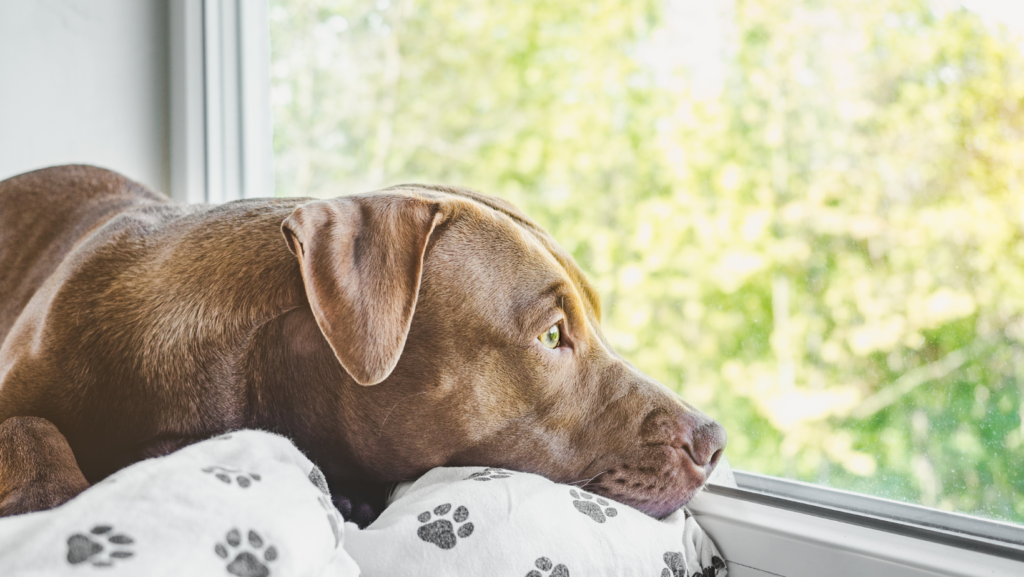
Poor bowel movement is not certainly a reason for putting down the dog. Most underlying conditions can be managed, and thus bowel incontinence too.
Unless and until the dog is in severe pain and the dog’s health is deteriorating every day, you should not put down your dog. But if the condition behind the bowel incontinence in the dog is some terminal illness or other grave issues, you can consider putting the dog down.
The cases and conditions vary from one dog to another. Therefore, the best advice is to get help from a veterinarian before arriving at any decision before making any decision.
You May Also Read: White Specks In Dog Poop: Causes And Treatment Solutions Guide
Conclusion
There can be numerous reasons for the dog leaving poop all around the house. It can be as simple as constipation, or it may signify some serious disease. You need to observe your dog and know the reason behind it pooping around the house randomly. The treatment then depends upon the underlying cause that caused the disease.
You can also use home remedies to help your dog get relief, but these remedies are always first aid and not a proper treatment. However, to treat the root cause of the disease, you need to consult with the veterinarian and provide your dog with proper treatment. The article will inform you about the reasons and help you know the treatment for the same.
Meet Madison Phillips, your compassionate guide to pet well-being. With experience from VCA Animal Hospitals and Laxton Vet Clinics Bellaire Inc. Madison honed her skills and embraced the balance of medical expertise and compassion, through her articles, she simplifies pet care, whether you’re a newbie or an experienced pet parent.

